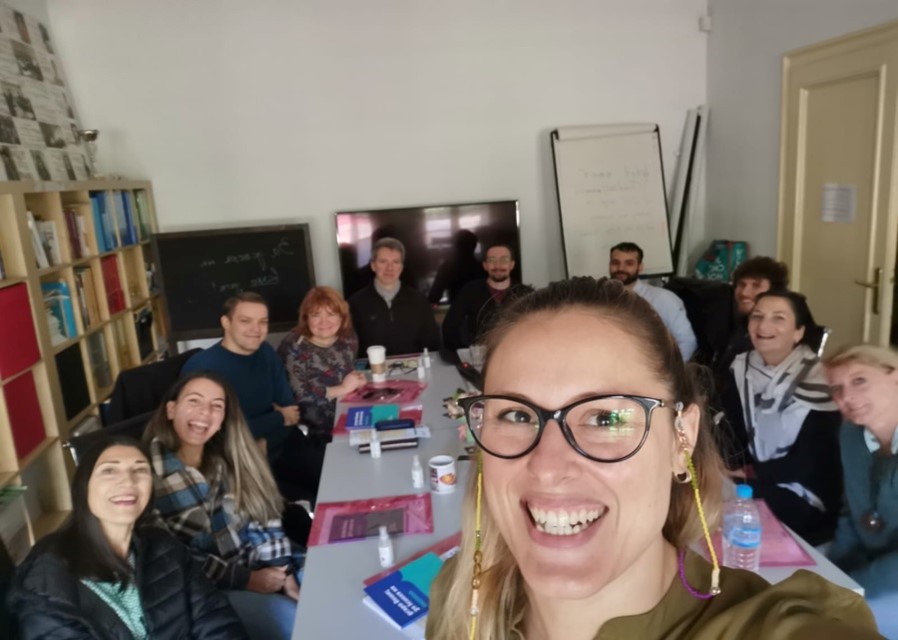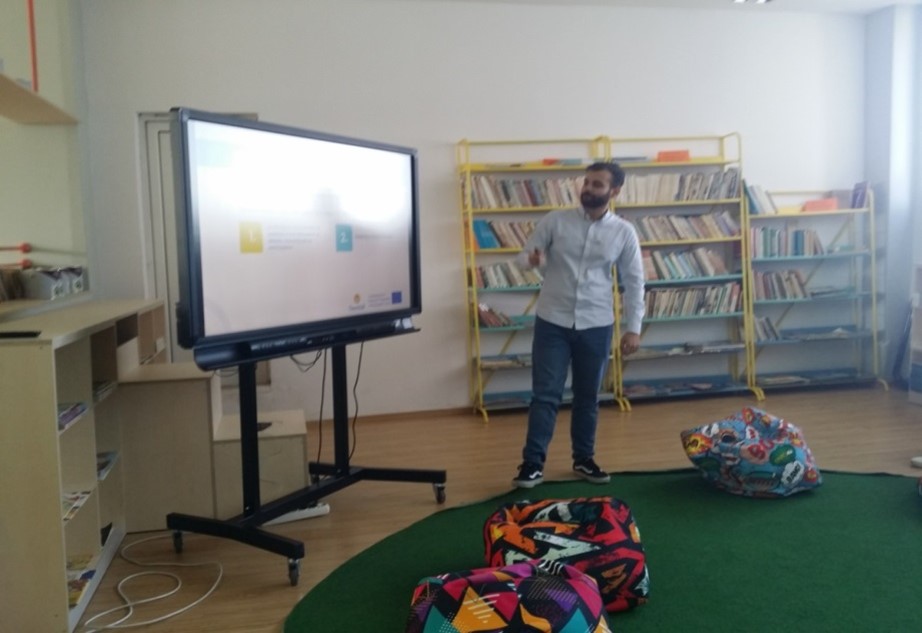Translated by Cinzia Billa
On 6th and 7th October 2022, the second meeting of the I TEACH WELL project (2021-1-FR01-KA220-SCH-000032680) was held in Sofia. Our coordinator Jean François Stich was invited to present the project at the local conference on technostress, held in Bulgaria on 7th October 2022. Jean François explained what technostress is. It is caused by all the IT tools that teachers now use intensively. Before the pandemic many teachers were already using technology (e.g. e-mails, electronic registers, etc.). The pandemic has, however, exponentially increased the stress they are under. Firstly, teachers were forced to use technologies for which they had received no prior training. Just think of the video lessons and all the related activities: preparing the software, the camera, the timetable, trying to involve students who most of the time did not interact and kept the cameras turned off, all this made the work very stressful. Secondly, there was an invasion of the private lives of teachers who were contacted 24 hours a day by students, parents, headmasters or vice-principals. This invasion of private lives often continues to this day, just as tools that boomed during the pandemic continue to be used. There are also opportunities arising from the intensive use of technology, teachers can be helped in their work by IT tools.

What solutions are we trying out in our project? Every teacher and every school is different, but there are solutions that can be adapted to any school environment. It is not only necessary to increase the availability of professional advice and training within schools, it is also imperative that teachers, with the help of management, create a positive working environment where mutual help among peers is encouraged. It is crucial to create a climate of sharing good practices, resources and tools and to break the isolation in which many teachers are relegated. To draw up guidelines, the project group is initially collecting opinions and suggestions from the teachers themselves, through questionnaires and focus groups.
On 6th October, the meeting in Sofia focused precisely on the guidelines for conducting the focus groups. The Italian schools involved in the project are the “Rosa Luxemburg” in Bologna (contact person Giuseppina Pinello, headmaster Alessandra Canepa) and the “Pietro Piazza” in Palermo (contact person Cinzia Billa, headmaster Vito Pecoraro). Teachers from the “Aldini Valeriani” in Bologna are also taking part in the activities in a personal capacity. The focus groups will be conducted by Elidea psychologists and will concentrate on the technostress to which teachers are subjected and the solutions that can be designed together.

Each focus group will last one and a half hours and will be divided into three parts: 1) techno-stress and problems arising from the use of technology at school, 2) opportunities that can be foreseen, 3) ideas and proposals for a course to increase well-being at school and decrease stress.
The focus groups will be held in parallel in Italian, Bulgarian, Latvian and Spanish schools. The questions will be open, Elidea psychologists will mediate the process to keep teachers focused on the topics of interest and will maintain a neutral attitude, the aim is to listen to the participants. Each focus group will consist of a minimum of seven and a maximum of ten teachers. The participants will be selected by Elidea together with the schools’ contact persons and will receive a specific invitation. Each participant will be guaranteed anonymity and, upon request, will be able to receive a specific ADi certificate valid for professional updating purposes.
The focus groups will end in November. In December, a survey will be launched, the validation of which was carried out in Italy thanks to the participation of 130 teachers. Cinzia Billa was the contact person for ADi for the validation phase.
The survey can be resubmitted to the same 130 teachers, who, by answering for the second time, will obtain a certificate as validators.
The purpose of the survey is the same as that of the focus groups, information is collected on the same topics, but the methods change. The survey consists mainly of closed questions, whereas the focus groups of open questions that allow for ideas, suggestions, in a broader manner. In March 2023, the project group will meet again in Nancy to analyse the data obtained and start gathering ideas for the construction of the course.
To learn more about the guidelines for conducting focus groups:

